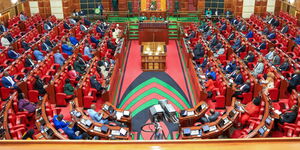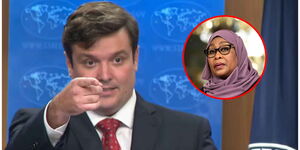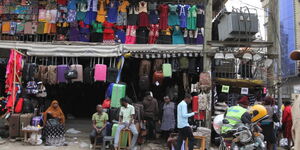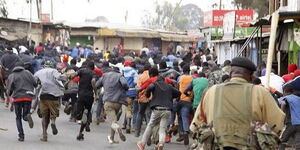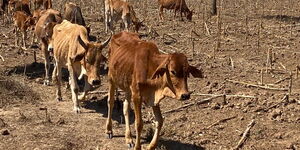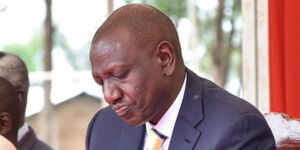The looming threat of tariffs by United States President Donald Trump is set to feature heavily in the Central Bank of Kenya’s Monetary Policy Committee meeting scheduled for August.
Trump’s administration has been sending out official letters to numerous trading partners, outlining specific tariff rates that will take effect on August 1 if bilateral trade deals are not reached. These rates vary, with some countries facing duties ranging from 20 per cent to 30 per cent.
Countries like Japan, South Korea, South Africa, Kazakhstan, Malaysia, Laos, Myanmar, the Philippines, Brunei, Algeria, Libya, Iraq, Moldova, and Sri Lanka have received these letters from the US.
For example, Japan and South Korea face a 25 per cent tariff, while Sri Lanka, Algeria, Libya, and Iraq face 30 per cent. The Philippines is set for 20 per cent. Some of these rates are adjusted (up or down) from initial threats in April.
While issuing the tariffs, Trump warned that if affected nations retaliate with their tariffs, the US will impose even higher duties, signalling a potential for escalating trade disputes.
Beyond broad country-specific tariffs, Trump already rolled out significant sector-specific duties since January 2025.
In April, Trump imposed a 10 per cent baseline tariff on all of Kenya’s exports. The tariff was set to affect Kenyan exports, particularly in key sectors such as textiles, tea, and coffee, which had been exempt from tariffs under the African Growth and Opportunity Act (AGOA).
The tariffs could lead to reduced exports, job losses, and lower revenues for businesses relying on the American market. He later issued a 90-day pause on the tariffs, but that has already expired.
Key African economies, including Kenya’s, are set to stake out different approaches to interest rates in the coming weeks as they gauge the impact of Trump’s new tariff proposals and their domestic influences on their economies and inflation.
In Kenya’s case, global economists predict that the CBK will further lower the Central Bank Rate (CBR) from the current 9.75 per cent. The CBR is the main policy interest rate set by the Monetary Policy Committee (MPC) of the Central Bank of Kenya (CBK).
They cited the recent civil unrest in the form of protests and weak private credit extension as solid grounds to do so, and to improve access to loans for Kenyans and the economy.
When lowering the CBR in June, the MPC observed that the overall inflation was expected to remain below the midpoint of the 5±2.5 percent target range in the near term.
The CBR serves as the primary benchmark or reference point that influences the interest rates commercial banks charge their customers for loans. By lowering the CBR, Kenyans would be able to enjoy easier access to loans as banks are forced to reduce their lending rates.
Despite the prediction, Trump’s tariffs could still sway the outcome of the Committee and potentially lead to an increase of the CBR. This would make it more expensive to get loans as banks would be increase their lending rates, leading to high interests.

